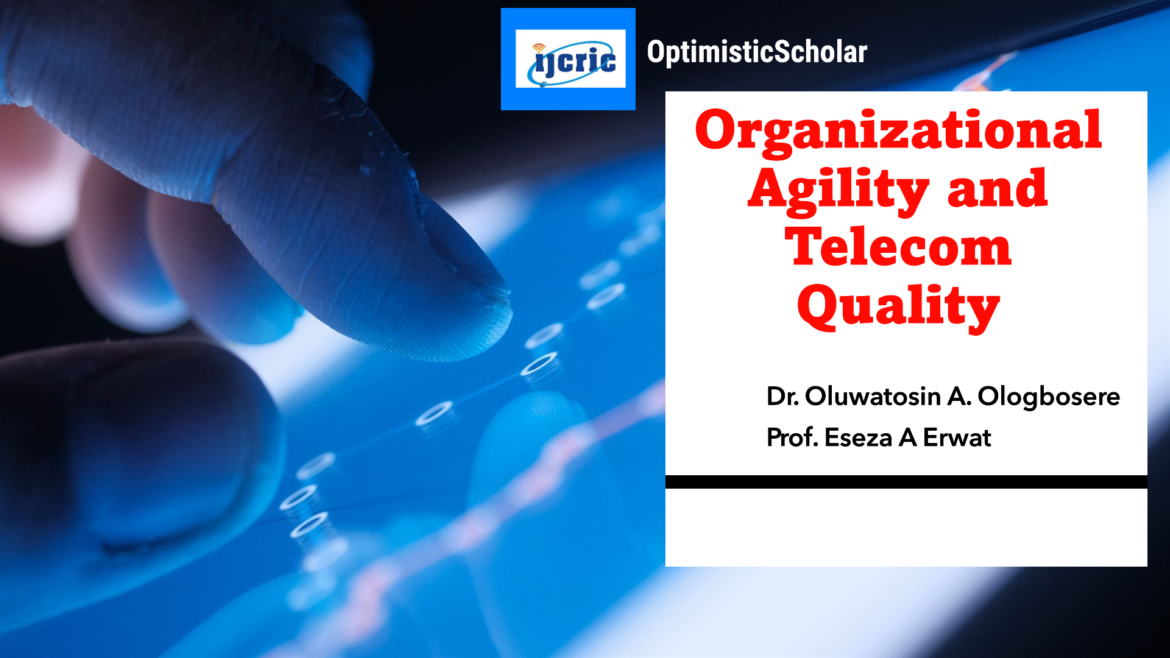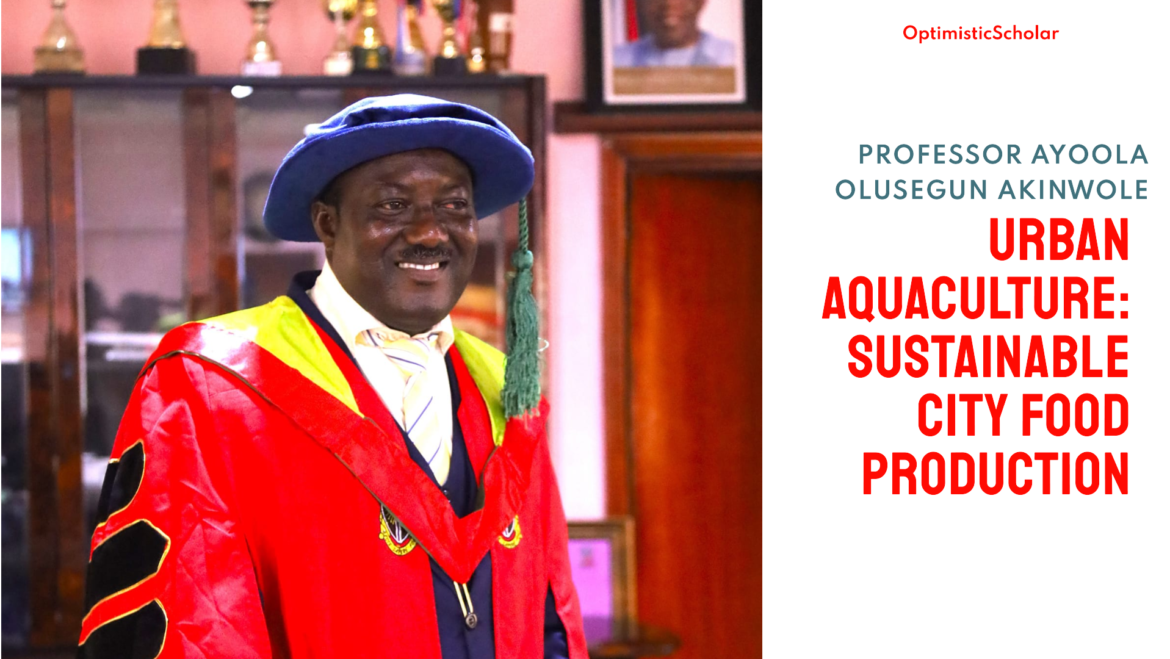New Study Highlights the Impact of Organizational Agility on Telecom Service Quality in Nigeria
 Despite the widespread adoption of 4G technology, Nigerian telecommunication companies continue to struggle with service quality, leaving many users frustrated. This ongoing issue prompted researchers Ologbosere, O. A., and Erwat, E. A., to explore whether organizational agility—the ability of companies to swiftly adapt to changes and seize new opportunities—could be the key to improving service performance. Their findings, recently published in the *Interdisciplinary Journal of Contemporary Research in Information and Communication* (Vol. 1, Issue 1, pp. 72–89), offer valuable insights for the telecom industry.
Despite the widespread adoption of 4G technology, Nigerian telecommunication companies continue to struggle with service quality, leaving many users frustrated. This ongoing issue prompted researchers Ologbosere, O. A., and Erwat, E. A., to explore whether organizational agility—the ability of companies to swiftly adapt to changes and seize new opportunities—could be the key to improving service performance. Their findings, recently published in the *Interdisciplinary Journal of Contemporary Research in Information and Communication* (Vol. 1, Issue 1, pp. 72–89), offer valuable insights for the telecom industry.
The Role of Organizational Agility
In today’s fast-paced telecom industry, where customer demands are constantly evolving, being agile is often seen as crucial for success. Organizational agility refers to a company’s ability to remain flexible, quickly respond to market changes, and capitalize on new opportunities. But how much does this agility actually influence service quality?
Key Findings from the Study
Ologbosere and Erwat conducted an in-depth survey involving 210 managers and 384 subscribers from four major telecom companies in South-west Nigeria. Their analysis revealed a positive, albeit modest, connection between organizational agility and service quality. Specifically, agility was found to account for approximately 9.6% of the improvements in service quality, suggesting that other factors also play significant roles.
One of the most interesting findings was that a company’s ability to sense changes in the market had a noticeable positive impact on service quality. However, simply recognizing opportunities isn’t enough. The study showed that the capacity to act on these opportunities (seizing capacity) and innovate did not significantly contribute to better service outcomes.
Implications for the Telecom Industry
For telecom companies, the message is clear: while organizational agility is important, it’s not a magic bullet. To truly enhance service quality, companies must go beyond just being agile. They need to invest in thorough monitoring and evaluation processes, and continuously seek ways to innovate. A well-rounded approach that combines agility with proactive actions and innovation is essential to staying competitive and meeting customer expectations.
*What This Means for Stakeholders**
For industry regulators and policymakers, the study highlights the importance of fostering an environment that encourages continuous improvement and innovation, alongside promoting agility. Supporting telecom companies in these areas will be key to driving significant improvements in service quality across the sector.
 To read the full article by Ologbosere, O. A., and Erwat, E. A., titled *Organisational Agility and Service Performance of Mobile Telecommunication Companies in South-west Nigeria*, visit the Interdisciplinary Journal of Contemporary Research in Information and Communication
To read the full article by Ologbosere, O. A., and Erwat, E. A., titled *Organisational Agility and Service Performance of Mobile Telecommunication Companies in South-west Nigeria*, visit the Interdisciplinary Journal of Contemporary Research in Information and Communication




 In a groundbreaking presentation at the University of Ibadan, Professor Ayoola Olusegun Akinwole, a distinguished expert in Aquaculture Engineering and Water Resources Management, proposed urban aquaculture as a transformative approach to addressing the pressing concerns of city-wide food production and resource utilization. This proposal was delivered during the 556th Inaugural Lecture of the University, representing the Faculty of Renewable Natural Resources.
In a groundbreaking presentation at the University of Ibadan, Professor Ayoola Olusegun Akinwole, a distinguished expert in Aquaculture Engineering and Water Resources Management, proposed urban aquaculture as a transformative approach to addressing the pressing concerns of city-wide food production and resource utilization. This proposal was delivered during the 556th Inaugural Lecture of the University, representing the Faculty of Renewable Natural Resources.



 Technology—a grand launch of a Festschrift in honour of the esteemed Professor David Folorunsho Elaturoti. The event took place on Saturday, July 27, 2024, at the KAAF Auditorium, situated within the Department of Human Nutrition and Dietetics. This celebration was not just an academic gathering but a heartfelt tribute to a scholar who has left an indelible mark on the field of Library and Information Science.
Technology—a grand launch of a Festschrift in honour of the esteemed Professor David Folorunsho Elaturoti. The event took place on Saturday, July 27, 2024, at the KAAF Auditorium, situated within the Department of Human Nutrition and Dietetics. This celebration was not just an academic gathering but a heartfelt tribute to a scholar who has left an indelible mark on the field of Library and Information Science.















